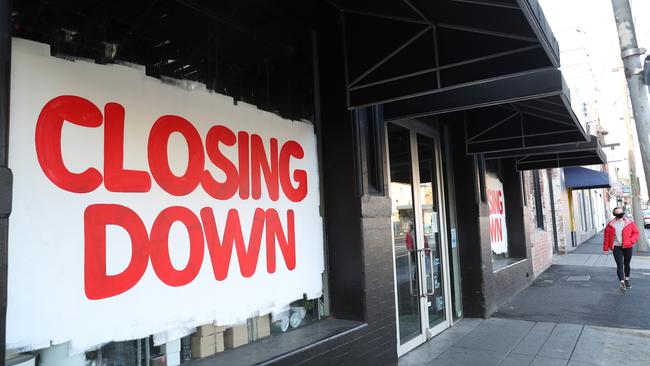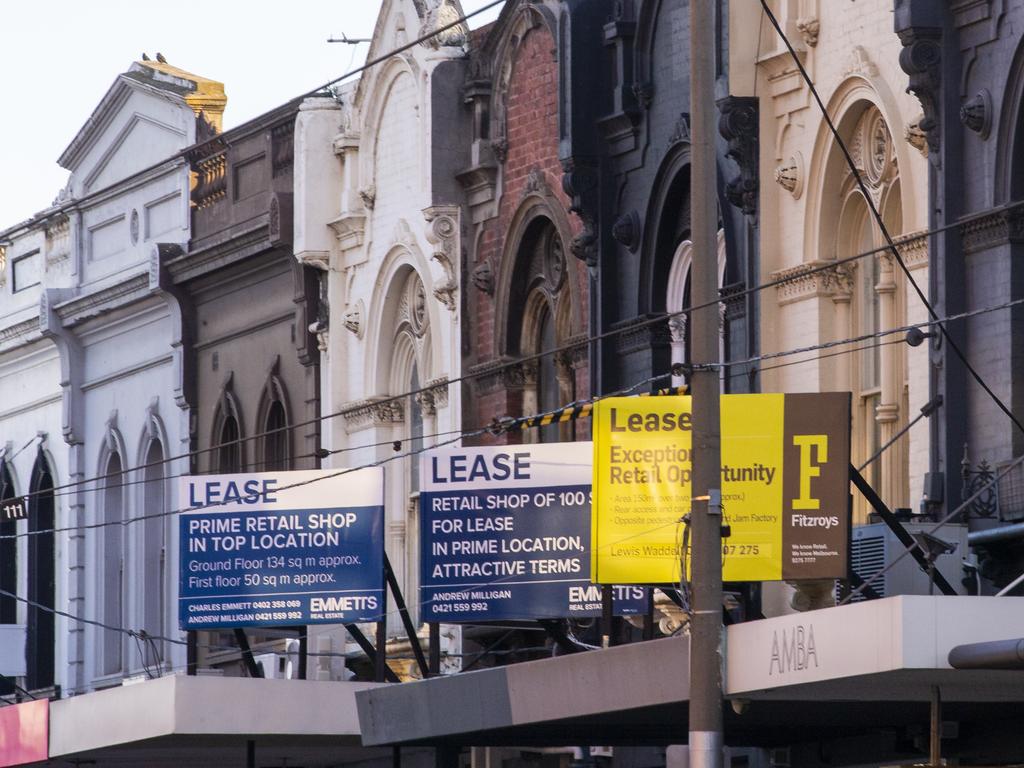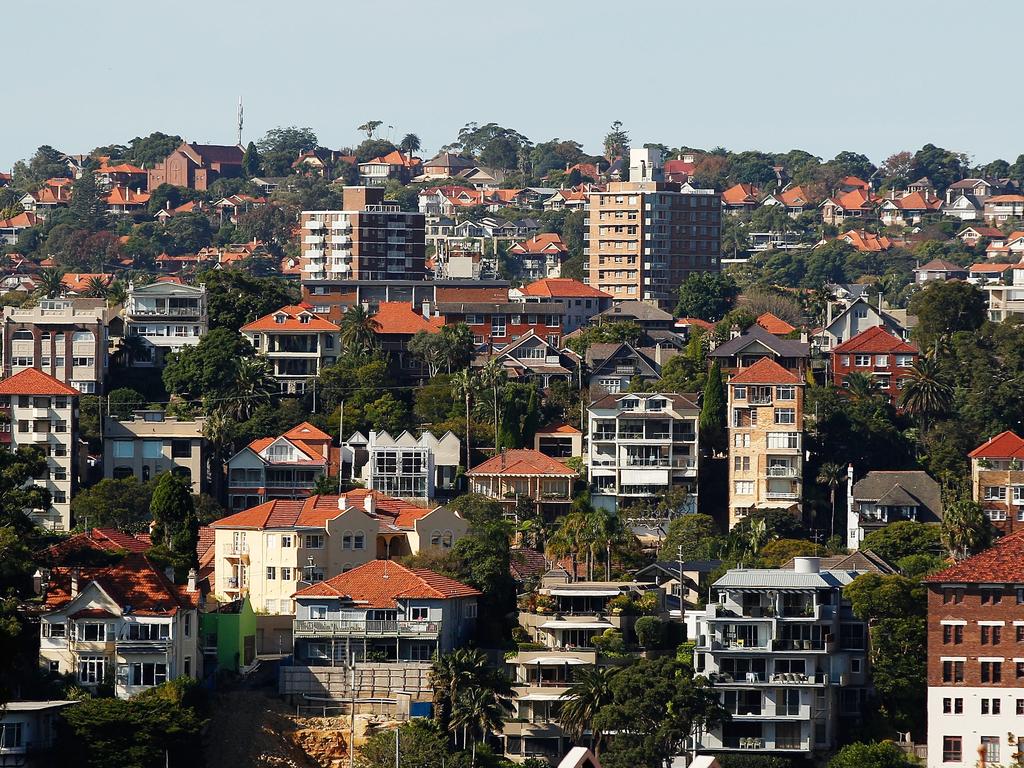Banks bracing for tsunami of defaults as support measures withdrawn
The banks are preparing for a wave of loan defaults by recruiting and redeploying thousands of staff to their hardship units.

The economy and the major banks are facing their biggest test since the 2008 financial crisis as a giant fiscal “taper” begins at the end of this month, with the downsizing of the JobKeeper program and the phased withdrawal of other support measures.
The banks are preparing for a wave of loan defaults by recruiting and redeploying thousands of staff to their hardship units, and the nation’s new external dispute resolution scheme, the Australian Financial Complaints Authority, is poised for an avalanche of complaints.
The fears have been compounded by NAB chief executive Ross McEwan’s evidence to a parliamentary committee earlier this month that 20 per cent of customers with deferred loans had failed to respond at all to the bank’s recent round of check-ins, although the figure has been falling as deferrals draw closer to expiry.
“The thing that distresses me right now is, when we’re making calls to customers to check in, 20 per cent won’t pick the phone up or call back, even if we text, email and phone,” Mr McEwan told the committee.
“We need to get over that. I think that openness and customers picking up the phone are going to be the vital pieces of this.”
The revelation prompted a special plea to bank customers from AFCA chief executive David Locke, who said it was “extremely important” for customers with deferred loans to make contact with their banks if they were still in financial difficulty.
“AFCA does expect to see more financial difficulty related to COVID-19 complaints over the next six months as the banks reassess loan deferrals,” Mr Locke told The Australian.
“If you received a deferral on loan repayments from your bank earlier this year and continue to experience financial hardship as a result of COVID-19, it is extremely important that you contact your bank as soon as possible to talk about the options available to you.”
As of August 31, AFCA had received 3172 COVID-19 complaints related to banking and finance, of which 1401 related to financial difficulty.
Mr Locke said these numbers were lower than anticipated because of the proactive approach taken by the banking industry on repayment deferrals.
The concern among the banks is the extent to which $240bn in deferred loans — including $167bn in housing credit (9 per cent of total accounts) and $55bn in SME loans (17 per cent of total accounts) — turn sour after deferrals expire at the end of March next year.
The industry’s bad debts are expected to peak around the middle of 2021, when capital relief granted by the prudential regulator comes to an end and loans become 90 days past-due.
The current period of relatively low loan losses and surprisingly few complaints to AFCA is seen by the industry as the calm before the inevitable storm. While some replacement support measures will be introduced in next month’s federal budget, their value is expected to be well short of the fiscal taper.
“It’s not so much the calm before the storm; it’s more like the nirvana before the storm,” Jefferies’ veteran bank analyst Brian Johnson said.
“No one really knows what’s going to happen when the support is withdrawn, but it’s hard to conclude that things are not going to get a lot tougher.”
Mr Johnson said it was “alarming” that 20 per cent of NAB’s customers on repayment holidays had failed to respond to the bank’s calls.
In broad numbers, the level of fiscal support to the economy is estimated to be $18bn per month, or 10.7 per cent of monthly GDP.
By October, this is expected to drop to $3bn per month, not including budget measures.
Loan repayment holidays, which were due to expire at the end of September, can now be extended but only on an individual basis after consideration by the banks.
While rent moratoriums have been lengthened to the end of the year in Victoria and South Australia, they will be withdrawn elsewhere at the end of the month.
The other big measure which has delayed the onset of loan defaults has been the introduction of temporary insolvency and bankruptcy protections, which were extended earlier this month until the end of the year.
As the industry’s day of reckoning approaches, the banks have been pouring resources into their hardship and restructuring teams.
Commonwealth Bank, which expects to make 250,000 calls to customers by the end of September, has more than doubled its home loan deferral staff to 1500, including 500 redeployed from temporarily closed branches.
The size of its SME hardship team has also increased but not by as much due to the suspension of insolvency laws.
Westpac has made a similar investment to CBA in its consumer and business banks, even though half its customers with deferred loans have switched back to making some kind of repayment.
While almost one-third of Westpac’s deferral customers failed to respond to check-ins after three months, this was because they were only asked to contact the bank if they wanted to extend their repayment holidays.
As a result, $20bn of deferred housing loans expired or ended in July, leaving a further $30bn in place.
NAB, for its part, has doubled its hardship and restructuring workforce in the bank’s consumer and business divisions to 1000.






